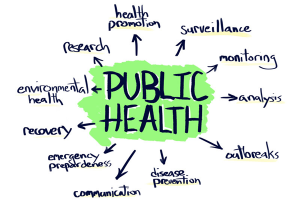In this article, we’d be talk about the Community Health Nursing (CHN) certification in lieu with General Nursing (RN) certification, how it is obtained, it’s the viability here in Nigeria and outside to pursue a career in comparison with the RN, RM or BSN/BNSc certifications and progress.
Community Health Nursing, interchangeably called Public Health Nursing, can be done under two categories – focusing on the Nigerian practice. One, by attending a University accredited for Nursing OR by attending a School of Nursing to get a nursing license. The general nursing license is referred to as RN and in Nigeria, it is issued by the Nursing and Midwifery Council of Nigeria (NMCN). This RN license, is a basic requirement which allows the holder to practice as a general nurse at any place and any time in and outside Nigeria.
However, there is a bit of disparity in the number of certification gotten depending on the type of institution attended for the nursing education and training. For example, ideally every student that trained and graduated from school of nursing come out with a RN license only; but individuals that studied nursing in a university and graduated, should come out with 4 different certifications namely BSN/BNSc – Bachelor of Science in Nursing, RM – Registered Midwife, RN – Registered Nurse, CHN – Community Health Nurse. This number of certification obtained from the university is also dependent on the university’s course accreditation. For instance, UNILAG, IMSU and more are not accredited for CHN yet so their nursing students only come out with RN, RM and BSC certification while Schools like Babcock, UI, OAU and some others gives the CHN certification upon graduation. This can be attributed to the lack of resources and training needed for the public/community health nursing certification exam.

Now, back to the main discussion, Community health nursing basically is Nursing with a mix of social science, public health and environmental science. Community health nurses use their nursing skill to provide care and judgement for individuals in the community and they work in advocacy, policy development and planning organizations. Other opportunities opened to a community health nurses include working in schools, port entries, correlational facilities, Infection disease centers, Nongovernmental Health Organizations e.g. WHO, Government agencies e.g. NAFDAC etc. and as a nurse or student nurse embedded in the community, you get an edge to work, do other things and earn more in legitimate way(s).
Hence, ideally, community health nursing should be a specialization – post or with basic nursing training – not a stand-alone without the prior training or knowledge of general nursing. As every general nurses can perform as community health nurses in the community, but not every nurse can provide an expert management on community issues. Likewise, not every community health nurses might be able to perform as general nurses in facility settings, except in their area of expertise. However, some schools of nursing have started offering this specialized community health nursing as a stand-alone, keeping in view that the training lasts for 2 years to obtain a CHN license and the tuition is lesser than the RN training which is for 3 years to obtain a general nursing license. One of such is the Oyo state School of Nursing, Eleyele, Ibadan, but for a BSC Nurse holder, he/she can do a master’s in public health and become a certified public/community health nurse.
So, if there was an option to choose between RN or CHN directly, it would be advisable to do RN first then specialize in post basic nursing for CHN. In the case of an individual who already has a RN certificate (i.e. attended a school of nursing) and wants to become a community health nurse, he/she must specialize through post basic nursing school in community health nursing. By doing this, the individual can advance in his/her career and also be able make more impact in the field.

Currently, there is still an uncertainty about the recognition of the singular new community health nursing (CHN) certificate gotten from Nigeria – if it can be used solely to work abroad, because every community has its unique problem peculiar to them – as compared to the general nursing (RN) certificate also gotten from NMCN, but is recognized both home and abroad. Therefore, if a person wants to travel abroad, it’s advisable to do general nursing (RN) or BSc Nursing, then CHN as an additional course or training for experience because RN and BSN/BNSc are the recognized certificates for a nursing career outside Nigeria, even the RM certificate as a stand-alone which is not “new” is not recognized abroad.
Other courses, professional exam and license offered to Nurses by NMCN include Community Midwifery, Mental Health/Psychiatric Nursing, Perioperative Nursing, Orthopedic Nursing, Ophthalmic Nursing, Paediatric Nursing, Critical Care Nursing, Accident and Emergency Nursing, Nose and Throat Nursing, Occupational Health Nursing, Burns and Plastic Nursing, Cardio-thoracic Nursing, Nephrology Nursing, Oncology Nursing and Nurse Anaesthetist Programme, These programmes, are however accredited by NMCN for postbasic nurses.
For more information and clarification, you can visit NMCN official page and contact @tobi taj @tobitalks, a migrant nurse to the UK to share her experience and advice accordingly.
Contributors:
Tayo Adejorin (RN, BSN-RM in view), Mbama Chisom (RN, RM, BNSc), Famakin Bridget (RN, BNSc, RPHN, UKRN), Bisi Agoyi (BSc. PH, RN in view) and Juliet Aniakor (RN, RM, BNSc).





Discussion1 Comment
I like your writing style, genuinely enjoying this web site.